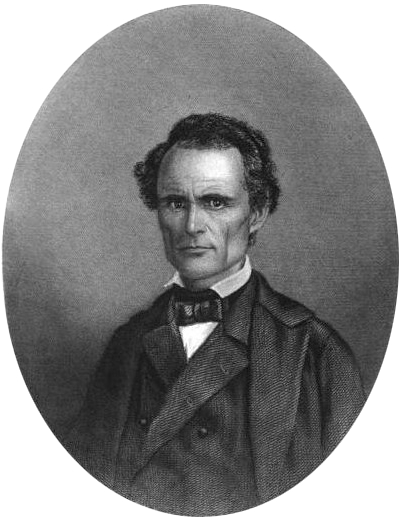|
Tennessee Code Commission
The Tennessee Code Commission is 1 of the 30 or more commissions, boards, and committees that provide assistance to the state court system. The commission consists of five members of which three are ''ex officio'': the Chief Justice of Tennessee, the attorney general and reporter, and the director of legal services for the legislature. The chief justice appoints the two other members. The commission publishes, sells, and distributes the compilation of laws, statutes A statute is a law or formal written enactment of a legislature. Statutes typically declare, command or prohibit something. Statutes are distinguished from court law and unwritten law (also known as common law) in that they are the expressed wil ..., and codes of the state. External links Tennessee Code Commission websiteTennessee Code , Chapter 1 - CODE COMMISSION , Casetext* https://www.tncourts.gov/boards-commissions/boards-commissions/tennessee-code-commission 2021 Tennessee Code :: Title 4 - State Govern ... [...More Info...] [...Related Items...] OR: [Wikipedia] [Google] [Baidu] [Amazon] |
|
 |
Government Agency
A government agency or state agency, sometimes an appointed commission, is a permanent or semi-permanent organization in the machinery of government (bureaucracy) that is responsible for the oversight and administration of specific functions, such as an Administration (government), administration. There is a notable variety of agency types. Although usage differs, a government agency is normally distinct both from a department or Ministry (government department), ministry, and other types of public body established by government. The functions of an agency are normally executive in character since different types of organizations (''such as commissions'') are most often constituted in an advisory role — this distinction is often blurred in practice however, it is not allowed. A government agency may be established by either a national government or a state government within a federal system. Agencies can be established by legislation or by executive powers. The autonomy, indep ... [...More Info...] [...Related Items...] OR: [Wikipedia] [Google] [Baidu] [Amazon] |
|
Ex Officio
An ''ex officio'' member is a member of a body (notably a board, committee, or council) who is part of it by virtue of holding another office. The term '' ex officio'' is Latin, meaning literally 'from the office', and the sense intended is 'by right of office'; its use dates back to the Roman Republic. According to '' Robert's Rules of Order'', the term denotes only how one becomes a member of a body. Accordingly, the rights of an ''ex officio'' member are exactly the same as other members unless otherwise stated in regulations or bylaws. It relates to the notion that the position refers to the position the ex officio holds, rather than the individual that holds the position. In some groups, ''ex officio'' members may frequently abstain from voting. Opposite notions are dual mandate, when the same person happens to hold two offices or more, although these offices are not in themselves associated; and personal union, when two states share the same monarch. For profit and nonpr ... [...More Info...] [...Related Items...] OR: [Wikipedia] [Google] [Baidu] [Amazon] |
|
|
Tennessee Supreme Court
The Tennessee Supreme Court is the highest court in the state of Tennessee. The Supreme Court's three buildings are seated in Nashville, Knoxville, and Jackson, Tennessee. The Court is composed of five members: a chief justice, and four justices. , the chief justice is Holly M. Kirby. Unlike other states, in which the state attorney general is directly elected or appointed by the governor or state legislature, the Tennessee Supreme Court appoints the Tennessee Attorney General. History When Tennessee was admitted as a state on June 1, 1796, it didn't have a provision for a judicial branch of government in its constitution. The Tennessee legislature created a Superior Court with three judges who were elected by the general assembly and functioned as both a trial court and an appellate court. In 1809, the Superior Court was abolished by the Tennessee legislature and a new Supreme Court of Error and Appeals, which only heard appellate cases, was established. In 1835, Tennessee ... [...More Info...] [...Related Items...] OR: [Wikipedia] [Google] [Baidu] [Amazon] |
|
 |
Attorney General Of Tennessee
The Tennessee attorney general (officially, attorney general and reporter) is the chief law enforcement officer and lawyer for the U.S. state of Tennessee. The office of the attorney general is located at the state capitol in Nashville, Tennessee. The current office holder is Jonathan Skrmetti, who was appointed in 2022 by the Tennessee Supreme Court for an eight-year term. His service officially began when he was sworn in by the current governor of Tennessee, Bill Lee, on September 1, 2022. Appointment by judiciary Unlike any other state, the Tennessee attorney general is an officer of the judicial branch, not the executive branch. Article VI Section 5 of the Tennessee Constitution provides for the appointment of the attorney general by the justices of the Supreme Court for a term of 8 years. In most other states, the office of attorney general is appointed by the governor or elected by voters or the legislature. Duties Office of the Attorney General The attorney general ov ... [...More Info...] [...Related Items...] OR: [Wikipedia] [Google] [Baidu] [Amazon] |
 |
Legislature
A legislature (, ) is a deliberative assembly with the legal authority to make laws for a political entity such as a country, nation or city on behalf of the people therein. They are often contrasted with the executive and judicial powers of government. Legislatures can exist at different levels of government–national, state/provincial/regional, local, even supranational (such as the European Parliament). Countries differ as to what extent they grant deliberative assemblies at the subnational law-making power, as opposed to purely administrative responsibilities. Laws enacted by legislatures are usually known as primary legislation. In addition, legislatures may observe and steer governing actions, with authority to amend the budget involved. The members of a legislature are called legislators. In a democracy, legislators are most commonly popularly elected, although indirect election and appointment by the executive are also used, particularly for bicameral legis ... [...More Info...] [...Related Items...] OR: [Wikipedia] [Google] [Baidu] [Amazon] |
 |
Statutes
A statute is a law or formal written enactment of a legislature. Statutes typically declare, command or prohibit something. Statutes are distinguished from court law and unwritten law (also known as common law) in that they are the expressed will of a legislative body, whether that be on the behalf of a country, state or province, county, municipality, or so on. Depending on the legal system, a statute may also be referred to as an "act." Etymology The word appears in use in English as early as the 14th century. "Statute" and earlier English spellings were derived from the Old French words ''statut'', ''estatut'', ''estatu,'' meaning "(royal) promulgation, (legal) statute." These terms were in turn derived from the Late Latin ''statutum,'' meaning "a law, decree." Publication and organization In virtually all countries, newly enacted statutes are published and distributed so that everyone can look up the statutory law. This can be done in the form of a government gazette, whi ... [...More Info...] [...Related Items...] OR: [Wikipedia] [Google] [Baidu] [Amazon] |
|
Government Of Tennessee
The Government of Tennessee is organized under the provisions of the 1870 Constitution of Tennessee, first adopted in 1796. As set forth by the state constitution, administrative influence in Tennessee is divided among three branches of government: executive, legislative, and judicial. The seat of the government in Tennessee is located in its capital city of Nashville. Executive branch Governor The Governor of Tennessee is the Supreme Executive Power set by the state Constitution. The Governor (currently Governor Bill Lee) is responsible for enforcing state laws and the state constitution and is also known as the keeper of the Great Seal of the State of Tennessee. Lieutenant governor The Tennessee Lieutenant Governor is the presiding officer of the Tennessee Senate and first in line in the succession to the office of governor of Tennessee. If the governor is incapacitated or dies in office, then the lieutenant governor becomes the governor. The lieutenant governor is a ... [...More Info...] [...Related Items...] OR: [Wikipedia] [Google] [Baidu] [Amazon] |
|
 |
Tennessee State Courts
Tennessee (, ), officially the State of Tennessee, is a landlocked state in the Southeastern region of the United States. It borders Kentucky to the north, Virginia to the northeast, North Carolina to the east, Georgia, Alabama, and Mississippi to the south, Arkansas to the southwest, and Missouri to the northwest. Tennessee is the 36th-largest by area and the 15th-most populous of the 50 states. According to the United States Census Bureau, the state's estimated population as of 2024 is 7.22 million. Tennessee is geographically, culturally, and legally divided into three Grand Divisions of East, Middle, and West Tennessee. Nashville is the state's capital and largest city, and anchors its largest metropolitan area. Tennessee has diverse terrain and landforms, and from east to west, contains a mix of cultural features characteristic of Appalachia, the Upland South, and the Deep South. The Blue Ridge Mountains along the eastern border reach some of the highest elevations ... [...More Info...] [...Related Items...] OR: [Wikipedia] [Google] [Baidu] [Amazon] |
 |
Tennessee Law
Tennessee (, ), officially the State of Tennessee, is a landlocked U.S. state, state in the Southeastern United States, Southeastern region of the United States. It borders Kentucky to the north, Virginia to the northeast, North Carolina to the east, Georgia (U.S. state), Georgia, Alabama, and Mississippi to the south, Arkansas to the southwest, and Missouri to the northwest. Tennessee is the List of U.S. states and territories by area, 36th-largest by area and the List of U.S. states and territories by population, 15th-most populous of the 50 states. According to the United States Census Bureau, the state's estimated population as of 2024 is 7.22 million. Tennessee is geographically, culturally, and legally divided into three Grand Divisions of Tennessee, Grand Divisions of East Tennessee, East, Middle Tennessee, Middle, and West Tennessee. Nashville, Tennessee, Nashville is the state's capital and largest city, and anchors its largest metropolitan area. Tennessee has dive ... [...More Info...] [...Related Items...] OR: [Wikipedia] [Google] [Baidu] [Amazon] |